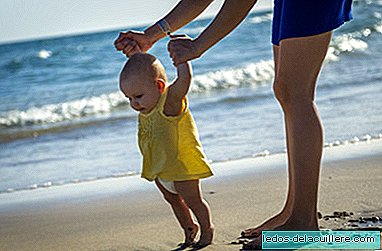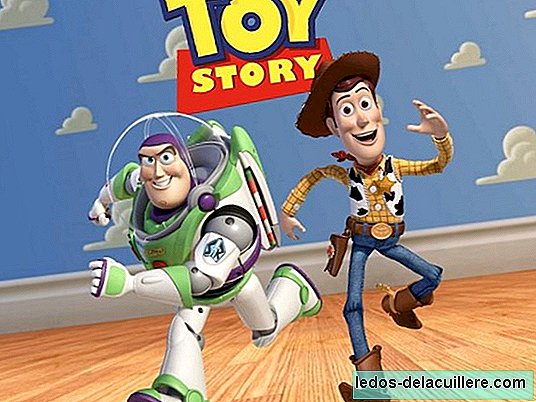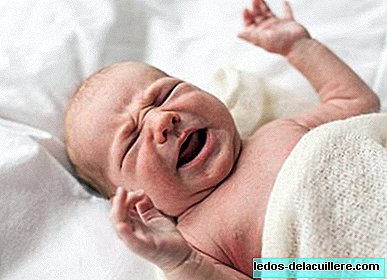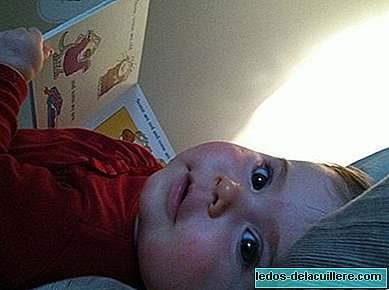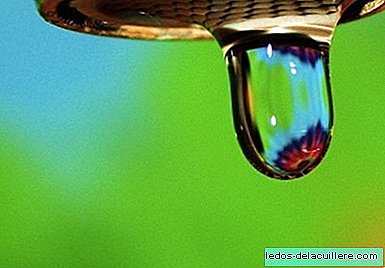
This is one of the million dollar questions when you are going to have a baby: Breastfeeding or artificial milk? Many mothers have made a decision at the time of giving birth, but many others have not even considered it and they are a little in expectation of what is recommended in the hospital, of the behavior of their new baby or of what lies ahead your own body
It is in this second case, when recommendations from the hospital can be somewhat confusing. To talk about this topic I am going to focus on an article focused on the population of North America.
In the United States, when a woman leaves the hospital, she has received the message that breastfeeding is the best for her baby and also takes a free sample of formula milk and discount coupons to buy it. Both the authorities of the Centers for Disease Control and Prevention, such as the American Academy of Pediatrics, the American College of Obstetricians and Gynecologists and WHO are against the delivery of samples to the women who have just had a baby at discharge (and then also, as we could see in the entry referring to the Code of Breast Milk Substitutes).
These samples are given to hospital staff, free of charge, by representatives of the milk brands and in turn, health professionals give them to mothers causing a reduction in breastfeeding rates.
It is estimated that only 11% of newborns in the United States receive exclusive breast milk for the recommended 6 months. In Spain, with 2006 figures, they are 28.89% (National Health Survey), which are better figures, but insufficient.
Between October 2006 and March 2007, a study was carried out. Nearly 94% of American hospitals said they distributed free artificial milk samples. Despite this, they were able to verify that the trend is down and that this practice will decrease over time.
In Spain there are no data on this, but there are many hospitals and many health centers that give milk samples to mothers, despite not being allowed.
The problem with giving samples is that a totally contradictory message is generated: "A is better than B, but I give you B to use. By the way, A is free, but B is not."
In other words: "you have just bought a flat that already comes with furniture. I know that they are very high quality furniture and that they require minimal maintenance, but just in case I give you some tables for you to make some new furniture You will have to buy other boards for you to assemble them and these are lower quality furniture and that require some more maintenance. "
That is, they give you something that is worse and that also costs money: "Breast milk is the best, give it to your baby, but just in case you take a sample".
Just in case what? Just in case it could be a lot of things, for the hospital staff one in case it might be that the mother is given a "telele" and that the father has to feed his baby until he recovers, for a mother one by one If anything, the child may cry 10 minutes in a row.
Nobody explains what it is just in case (and if they explain it sometimes they give wrong type information: "if you have poor quality milk" or "just in case you run out of milk") and yet in the heads of the mothers, who They usually have an impressive cocoa for receiving advice from everywhere, just in case it is anything.
That is why they should not show themselves, because they generate mistrust on the part of the mother in her own ability to feed her baby:
- "I will give it if I have milk" - when virtually all mothers have milk.
- "I'll give it until I run out of milk" - when the milk never runs out if the baby sucks.
- "I will give it to you, but if I see that you are hungry, I will give you a supplement" - when the solution, if you stay hungry, is to breastfeed again and again, until the production is regulated.
There are not many mothers who trust in being able to breastfeed their babies and instead of giving messages of trust or support and providing resources to new mothers, they are given a pot of artificial milk so that they gradually stop breastfeeding.




